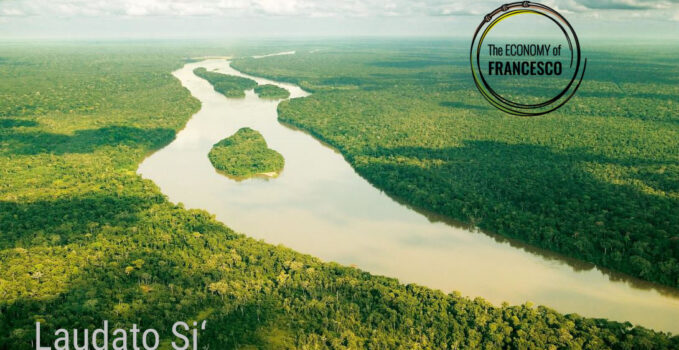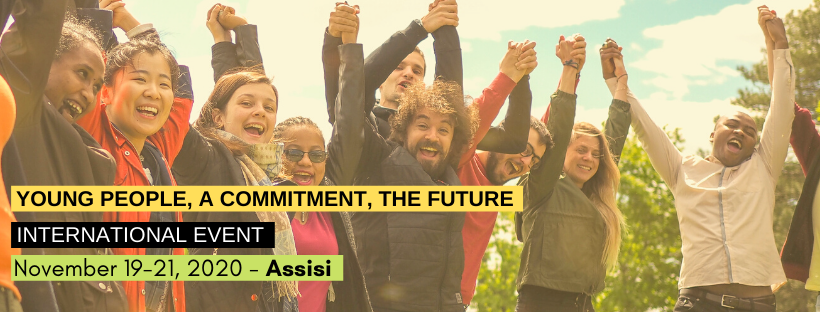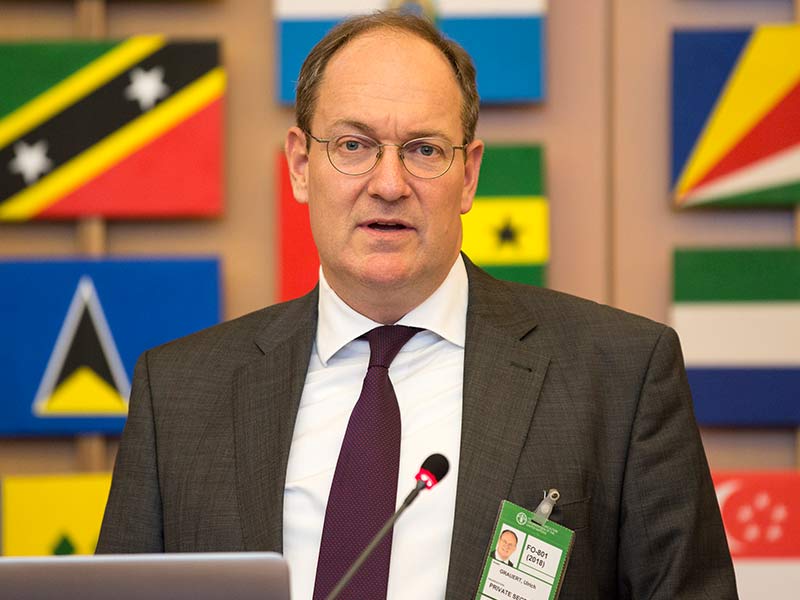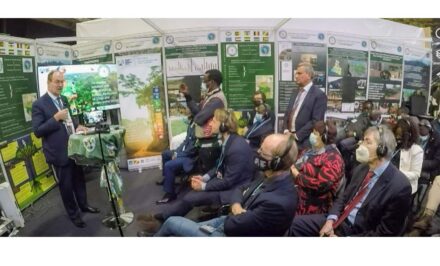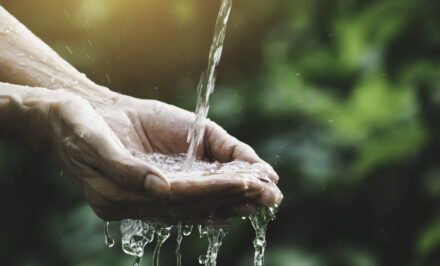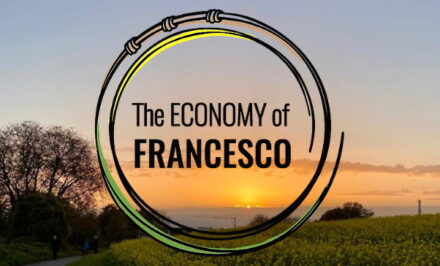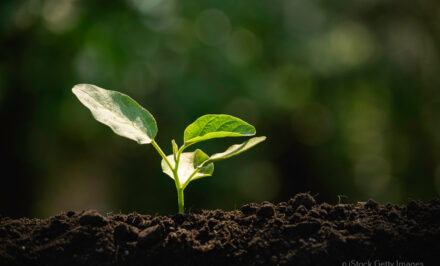Interview with Ulrich Grauert, Switzerland, on Economy of Francesco •
“I am one of the 2000 young people who were selected for The Economy of Francesco in Assisi,” Valentina Alarcón, an engineer from Chile, wrote to me in the chat of a video conference on social justice and the new social order, which was organized by a group of Chilean Schoenstatters motivated by the social thought of Joseph Kentenich. “We have to talk about this specifically”, I write back, “I know someone from Switzerland who is also present. I refer to Ulrich Grauert, CEO of Interholco AG, one of the leading international producers of wood from Africa, with more than 50 years of experience in the sustainable procurement and production of wood in the Congo Basin, with his wife, Melanie, co-founder and director of IKAF (International Kentenich Academy for Leadership), editor of the German version of “Freude leben in der Arbeit” (Living Joy at Work) and for some time now also in good exchange with the “Economy of Communion” of the Focolare Movement.—
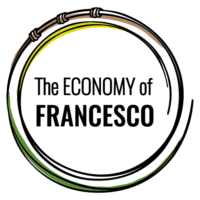
A contribution by Valentina on her previous work for “Economy of Francesco” is in progress. The Economy of Francesco is an international event aimed at young economists, entrepreneurs and change-makers engaged in thinking and practicing a different type of economy. The invitation to participate has come directly from Pope Francis, who has today issued a letter in which he invites to the City of St. Francis, which is symbol of humanism and fraternity, young economists and entrepreneurs from all over the world, without distinctions of creed or nationality, to initiate with them a process of global change so that today’s and tomorrow’s economy is fairer, inclusive and sustainable, without leaving anyone behind. The most complex problems in today’s world, from safeguarding the environment to justice for the poor, need courageous commitment to rethink the economic paradigms of our time. In the Encyclical Letter Laudato si’, the Holy Father recalled that everything is intimately connected and that the Earth is our “common home”, and therefore launched an appeal to defend it and all of humanity that inhabits the Earth. He warned us against the careless exploitation of resources and short-sighted policies that look to immediate success without prospects for the long-term. Starting from the example of St. Francis, it is therefore necessary to rebuild a new integral ecology, one that is inseparable from the concept of the common good, which must be implemented through choices based on solidarity and the “preferential option for the poor, starting from solving the structural problems of the world economy.”
Pope Francis had invited for March 2020 in Assisi; due to the coronavirus pandemic, it was re-scheduled for mid-November. The city of St. Francis is to be organized for this purpose in 12 “villages”, where the great questions of the economy of today and tomorrow will be debated and solutions proposed: Work and Care; Management and Gift; Finance and Humanity; Agriculture and Justice; Energy and Poverty; Profit and Vocation; Politics for Happiness; CO2 of Inequality; Economy and Peace; Women for Economy; Business in Change; Life and Lifestyle.
Valentina had become aware of “Economy of Francesco” through a post on Instagram, in which someone expressed regret that unfortunately she no longer fit into the age group – and then, to her great delight, found that herself could still apply.
Ulrich Grauert is “far” over 35 and has also managed to get in.
How did you hear about Economy of Francesco?
A colleague of the marketing department, who is sensitive to the issues that concern us, such as sustainability, drew my attention to it and said that we should participate as a company. We then did some research and made contacts but did not get anywhere. Then it was also mentioned by a contact we have with the Economy of Communion of the Focolare Movement, who are co-organizers, and it was also discussed in Schoenstatt circles. I was simply fascinated that so many young people, young entrepreneurs, who want more, who want to help shape a new world, would come together. At first, I thought that I could participate with my wife, but I realized that “simply participating” was not possible. Through our Focolare contacts, with whom we organized a conference on „Together for Europe: YES, to a just economy“ in Loppiano and after some research, I learned that mentors or advisors are also invited to the 12 villages. They can support in the background with experience. I am now involved as a private person, but of course I can only talk about what we are doing with our company in Africa. I said I would simply make myself available and be there during the week. I also had an experience at a conference in Rome with the FAO on forestry in Africa concerning halting deforestation and increasing forest areas. There was a youth meeting the day before, which I was not allowed to attend! During the event I however met some of the younger people and one of the participants became a master student in our company afterwards.
What do you notice in the way young people approach the topic?
I see already with our own children that the young generation thinks about the topic in a completely different way than we used to think. They think quite differently about the future, asking specifically: What am I doing and what am I not doing? What is my personal “footprint” in my life today? This mindfulness fascinates me. Without this generation we cannot go forward, and we can learn a lot from them. It is also a „give and take“ – our experience and their mindfulness and looking more closely to the matter. I hope that this meeting will help me to get new impulses, more clarity, maybe a new focus.
There is, for example, a young woman that has planted a vegetable garden on her balcony, perhaps only two square meters; it feels bigger than the one in our garden! She has also bought a small composting plant, with which she composts waste herself, and has sent us photos of the first „harvest“ from her garden… We did not have this way of thinking back then. Behind it all is this questioning, how do I live, which footprint do I leave behind. Or someone has not yet got a driver’s license and says: I do not need one. Or I do not need a car, I borrow one when I really need it. For us it was the very first thing to get a driving license! It is not that young people do not have the same thirst for freedom as we did back then, but it expresses itself differently. There is this new „thought“ behind it: What’s the impact if I buy this, when I drive a car, taking the plane. I also see a greater maturity in this consideration: What happens if… We all must rethink massively.
Where do you see the possibilities or the need to complement each other?
Just yesterday I had an exciting conversation with young people about corporate responsibility in large companies. One of the topics was Nestlé. That is currently a subject of very controversial discussion. What is reported about this or that company in social media? What is opinion making and is perhaps not always honestly researched? What independent information and reports, facts do exist? Where are companies really making efforts to change and want, correcting mistakes and breaking new ground?
Especially today we must rethink how we deal with mistakes. For me, it is important to have a „culture of mistakes“ where it is allowed to make mistakes, not intentionally, of course. To call things by their name, but also to accept a change of course by companies and then move on together. Not to mingle and lump everything together and think that it all is only about greed, bonus payments, or the highest possible profits. Above all, it is about actively participating yourself, not to point fingers from the outside, but to take a constructive approach and to go new ways together, to take responsibility for where I stand, where I can have an impact. Otherwise we will not get anywhere. Above all, discussions must not become ideological. We always need to relate to reality. This exchange and complementing each other are important and valuable for me.
This is where the word “covenant culture” comes into play: We want to seek an honest, sincere exchange, to put aside our tunnel vision and see connections more clearly in mutual complementarity, and then find solutions and change things. Schoenstatt brings us to a more complex thinking, a thinking in contexts, to a networked thinking and acting. Only together can we tackle and solve the large, complex issues, such as climate change. In my opinion, a close cooperation is needed between the private sector, private sector companies, NGOs, the end users, governments, science, the youth, the financial sector and also the Church. Not just each one for himself – that is also important – but above all constructively together, not against each other. In this way, a true “covenant culture ” can come alive and help to find answers and viable paths for the big questions of today
What do you want to contribute in Assisi?
I would like to inspire enthusiasm for sustainable forest management in tropical areas, especially in the Congo Basin of Africa, conservation through sustainable use – these are topics that excite me. We cannot simply put a bell over the forest and not touch it, but we must preserve it through sustainable use and the maintenance of biodiversity, through care, through design from an ecological point of view.
You are about to read Laudato Si` for the second time. What appeals to you there?
Together with my wife we try to read a bit further every day. While reading, you always get stuck on statements and ask yourself: What does this mean for me personally, very concretely? What can I contribute in this sense or change in me? I think, for example, about the lifecycle discussion, i.e. how long a product lasts, when and how it is disposed of, the subject of waste separation, recycling, throwing away or repairing. We consider, for example, going shopping more in the neighborhood, or the very ‘banal’ question of what packaging we buy the milk in, which we then must dispose of again. So, the question: how and where do we go shopping? Which “garbage” do we bring into the house, which then must get out again somehow and at some point?
Three weeks ago, our old cassette recorder broke down. We only need it for old children’s cassettes for the grandchildren. We wanted to throw it away. In the village there is a “repair café”. They repair electronic devices for free. This is an ingenious initiative of the Swiss government together with pensioners who repair electronic devices professionally in their spare time. Now the cassette recorder works perfectly again.
But then there is also the joy that we, as a company using wood from Africa, have a product that has a very closed lifecycle: Wood can be used to build wooden houses, as well as furniture or beautiful wooden patios that last extremely long. Much longer than plastic terraces or wooden terraces made of local wood that must be chemically treated to extend its life-time. Wood helps protect the climate. Trees and forests are an effective weapon against climate change: they draw the carbon dioxide (CO2) from the air and store the carbon in the wood and in the forest floor. The carbon is stored inside the wood, in the product, until the “end of life” of the wooden house, or wooden chair or terrace. God has made an ingenious invention here. And at the end of the life cycle of a wooden product, it can be directly put into the “compost”. Unlike other products, the life cycle is closed.
Laudato Si’ fascinates me, there is no one-sidedness or polarization, everything is interrelated, and there is also room for economic issues. We are still considering how we can contribute with the IKAF-initiative to the implementation of the concerns of Laudato Si’.
Laudato Si’ is about the environment, but it is also about the internal environment, including the human being and his dignity and rights. I had to think of this in a conversation with someone who has just lost her job because now with COVID-19, travel was no longer possible for her. That hurts.
Laudato Si` clearly reflects what is happening in the world at the moment, what has to happen, and that our theoretical knowledge in Schoenstatt about the organic context of everything is now required to be put into practice in a concrete way, and that we cannot close our eyes, but that we can all contribute, even if perhaps only in a small way.
What I like about Laudato Si` is the reference to Francis of Assisi, his mentioning of „Brother Earth“, „Sister Sun“, etc. – it is about our covenant with creation. This is very tangible during our work in Africa. The closeness to nature that we encounter every day, through medicinal products for example that come from the forest, from the trees. Or questions on agriculture: where is it allowed, where not. Animals need to be protected, but on the same side hunting is allowed too in parts because it is important for the local population and their livelihood.
Laudato Si` makes us think and encourages us in our business model, in which the whole biodiversity and its preservation is consciously included. We know we have an impact on the animal world or on plants. And yes, it is a balancing act between what is economically feasible and what is ecologically needed. That is not easy. This is the great tension in the world that Father Kentenich speaks of.
In which “village” are you active in the Economy of Francesco?
The “village” is Agriculture and Justice.
Among other things, it deals with the role of agriculture and forestry in coping with the enormous climatic changes, the growing world population, and the increasing land conflicts. Climate change is robbing millions of people around the world of their livelihoods. Labor rights, the right to work, protection of indigenous peoples, challenges related to food security, the production of biofuels and new technologies are just some of the challenges facing global agriculture and forestry: How can we combine justice with sustainable agriculture and forestry to preserve our planet? How do farmers and foresters deal with the economic challenges and opportunities of globalized world markets in times of major climate change? These are the topics.
In the now extended preparation period there are a whole series of webinars on the topics of our village. I have listened to two of these webinars, and there are hundreds of people attending each time.
Many thanks for your time! And soon we will talk about what you are doing with your company in Africa in the spirit of Laudato Si`!
The interview was conducted by Maria Fischer, editor schoenstatt.org
Open seminars between COVID-19 and Economy of Francesco
The on-life seminars broadcasted on The Economy of Francesco social media have been a great success. Moving towards a post-Covid better world is an online initiative, organized by The Economy of Francesco scientific committee, to explore several topics and challenges facing today’s economy.
This series of on-life seminars was launched on May 1st, with the Canadian Philosopher Jennifer Nedelsky, internationally known for her proposal “part-time work for all, care for all”. On Labor Day, Professor Nedelsky engaged in a dialogue with young economists and entrepreneurs on topics ranging from work, care, and relationships, to possible future scenarios. More than 1000 people followed the live broadcast from all over the world: Italy, Argentina, Ivory Coast, Korea, Portugal, Cameroon, Poland, Colombia, Nigeria, Brazil, Spain, Switzerland, India, Chile, Belgium, Ireland, South-Africa, Botswana and Cuba. Broad participation was also achieved during the second on-life seminar with Father Vilson Groh, a priest who lives and works alongside the poor in the Brazilian favela of Florianopolis, in the name of dialogue and inter-culture. Building on his personal experience, he addressed the issue of poverty around the world and contemporary global society, with emphasis on education, social justice, and the integral ecology challenge.
The seminars can be viewed here (in English)
Original: German. Translation: mf, ug


